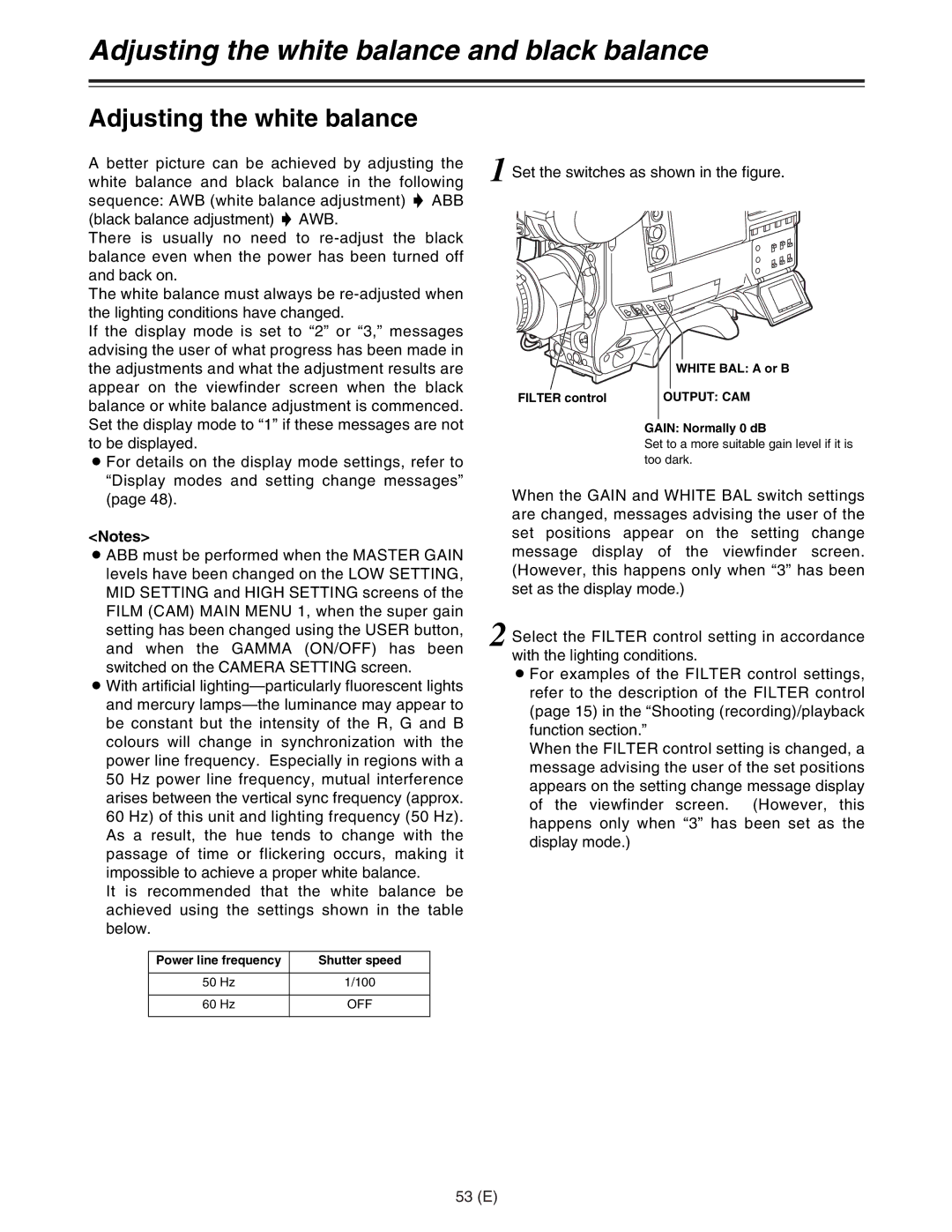
Adjusting the white balance and black balance
Adjusting the white balance
A better picture can be achieved by adjusting the white balance and black balance in the following sequence: AWB (white balance adjustment) 5 ABB (black balance adjustment) 5 AWB.
There is usually no need to
The white balance must always be
If the display mode is set to “2” or “3,” messages advising the user of what progress has been made in the adjustments and what the adjustment results are appear on the viewfinder screen when the black balance or white balance adjustment is commenced. Set the display mode to “1” if these messages are not to be displayed.
O For details on the display mode settings, refer to “Display modes and setting change messages” (page 48).
<Notes>
O ABB must be performed when the MASTER GAIN levels have been changed on the LOW SETTING, MID SETTING and HIGH SETTING screens of the FILM (CAM) MAIN MENU 1, when the super gain setting has been changed using the USER button, and when the GAMMA (ON/OFF) has been switched on the CAMERA SETTING screen.
O With artificial
It is recommended that the white balance be achieved using the settings shown in the table below.
Power line frequency | Shutter speed |
|
|
50 Hz | 1/100 |
|
|
60 Hz | OFF |
|
|
1 Set the switches as shown in the figure.
WHITE BAL: A or B
FILTER control | OUTPUT: CAM |
GAIN: Normally 0 dB
Set to a more suitable gain level if it is too dark.
When the GAIN and WHITE BAL switch settings are changed, messages advising the user of the set positions appear on the setting change message display of the viewfinder screen. (However, this happens only when “3” has been set as the display mode.)
2 Select the FILTER control setting in accordance with the lighting conditions.
O For examples of the FILTER control settings, refer to the description of the FILTER control (page 15) in the “Shooting (recording)/playback function section.”
When the FILTER control setting is changed, a message advising the user of the set positions appears on the setting change message display of the viewfinder screen. (However, this happens only when “3” has been set as the display mode.)
